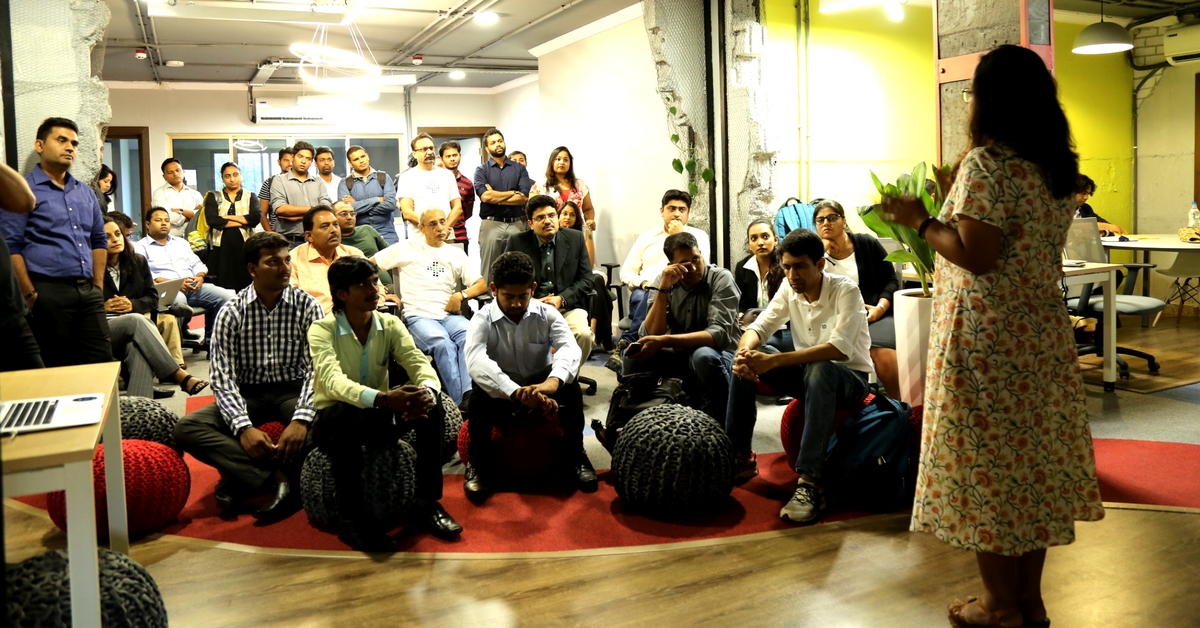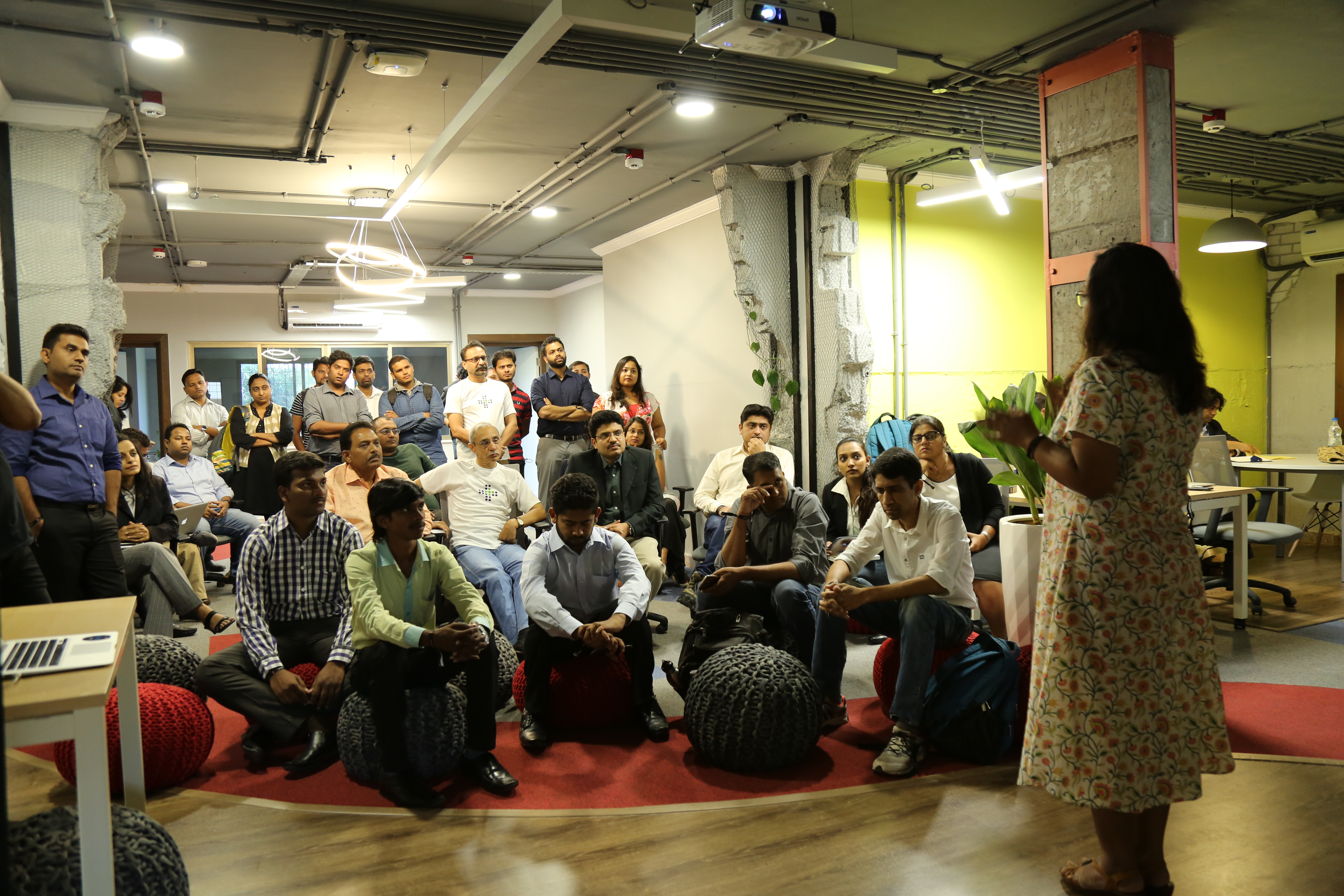Want To Set Up An NGO But Don’t Know How? Hear It from Those Who Did
A support system can make a tremendous difference to anyone aspiring to set up a nonprofit with enough funds to operate.

For everyone who has ever dreamed of starting a nonprofit from scratch, the story of Dr Anshu Bharadwaj would resonate. He is the executive director of a not-for-profit research organisation called the Center for Study of Science, Technology and Policy (CSTEP). He along with Dr V.S. Arunachalam, chairman and founder, set up the organisation ten years ago with a lot of commitment and passion.
Before materialising his dream to set up a high-quality institution to do meaningful work in energy policy, Dr Anshu was in the 1992 IAS batch in Karnataka. He had to resign to bring his dream of a nonprofit to fruition.
The CSTEP team set out to identify important policy questions that were relevant to them. This was right after the UN Climate Summit in Copenhagen when the government had announced its National Action Plan on Climate Change.
Among the various missions that the government had included in the plan, the areas that the team felt they could contribute to were the energy efficiency mission and the solar mission.

They then identified the critical stakeholder agencies as well as policy questions and mulled over how CSTEP could contribute to these in a meaningful manner.
However, like any other non-profit, CSTEP faced the issue of funding. For the initial 1 to 1.5 years, they received no grants. It made it difficult to sustain.
“Unlike nonprofits set up by established institutions, we had begun ours from scratch. We had nowhere to look forward to,” he told The Better India.
Dr Anshu could manage financially with the help of his wife’s income, but he says it would prove to be very difficult for anyone to manage in such a situation. Moreover, when there are not enough funds to recruit people, team members had to often play different roles.
“In the initial stage, people have a number of ideas, lots of passion but no money. So, a support system can make a tremendous difference to anyone aspiring to set up a nonprofit with enough funds to operate,” he adds.
For them, the opportunity came in the form of two grants by Shiv Nader Foundation and Tata Trusts. The grants enabled them to build an institution. It was a godsent opportunity that got them started. They were now able to recruit people and enhance basic infrastructure in their office.
Gradually, CSTEP gained credibility with policymakers. Soon, it received projects in Energy Efficiency and Renewability from Shakti Sustainable Energy Foundation. It already had in place a critical mass of researchers – 8 to 10 people who were able to execute such projects.
In the next few years, CSTEP received core grants from two foundations that helped them develop into a full-fledged institution.
“All non-profits start with a lot of passion with people who want to do something good for society. And that is great. However, we know that translating that into a concrete policy requires different skill sets. Sometimes you may have a great idea, but it wouldn’t mean much without thorough analysis and research. Also, not every study will necessarily lead to an impact. It requires a lot of patience. You also need to be able to customise your research in a way that makes sense to bureaucrats,” he says. These are things that CSTEP learnt along the way while working on various projects.
Mr Krishan Dhawan is the CEO of Shakti Sustainable Energy Foundation, which provides funding for policy research and advocacy, with areas of research around factors that contribute to climate change or policies that can help mitigate it. It has worked with existing organisations who have the expertise and the reach to work in the areas that interest them.
However, as they helped existing organisations grow, they thought of how they could also help create such institutions.
Talking about the need for a support system for non-profits, Mr Krishan told The Better India, “It’s one thing to help something that’s already set up, but the biggest challenge is the actual set-up process. People aren’t often aware of the efforts and the process required to set up. This brought in the need for an incubator,” he says
The incubator would provide a space, help the person with their idea, support them in their initial days, give them legal advice, accounting advice as well as access to mentors.

It would also transform their somewhat fuzzy idea into a sharper proposal. Apart from that, the individuals will get to network, be introduced to people who will be interested in funding their idea.
“We often come across people who have the money but don’t know where to meet people with good ideas, and people with good ideas are not knowing where to get the money from. The incubator would bridge the gap between them,” he said.
The Shakti foundation set out to develop this incubator and needed a partner who could implement their idea. This was when the Indian School of Business in Hyderabad came into the picture. They had an existing incubator called DLabs.
Together they decided to create a support system for nonprofits and their initiative Clean Energy Labs was formed. The initiative wants to identify and incubate five exceptional ideas to create policy action on clean energy in India.
This programme will be helpful for any high potential individual with an idea to set up a non-profit organisation or founder of an early stage non-profit. It will provide them with space, financial support, access to networks, tools and frameworks, and mentorship among others. Dr Anshu Bharadwaj and Mr Krishan Dhawan are among the mentors of the programme.
If you feel you have the next big idea in clean energy to create policy impact, you can apply for their incubation programme here. The application deadline is November 30, 2017. For more info, click here.
Like this story? Or have something to share?
Write to us: [email protected]
Connect with us on Facebook and Twitter.
NEW: Click here to get positive news on WhatsApp!
If you found our stories insightful, informative, or even just enjoyable, we invite you to consider making a voluntary payment to support the work we do at The Better India. Your contribution helps us continue producing quality content that educates, inspires, and drives positive change.
Choose one of the payment options below for your contribution-
By paying for the stories you value, you directly contribute to sustaining our efforts focused on making a difference in the world. Together, let’s ensure that impactful stories continue to be told and shared, enriching lives and communities alike.
Thank you for your support. Here are some frequently asked questions you might find helpful to know why you are contributing?


This story made me
-
97
-
121
-
89
-
167













